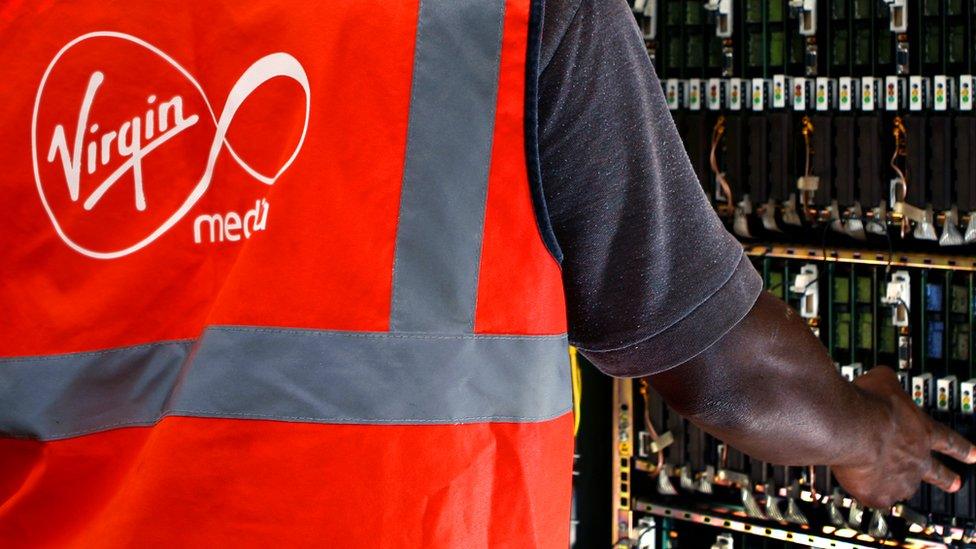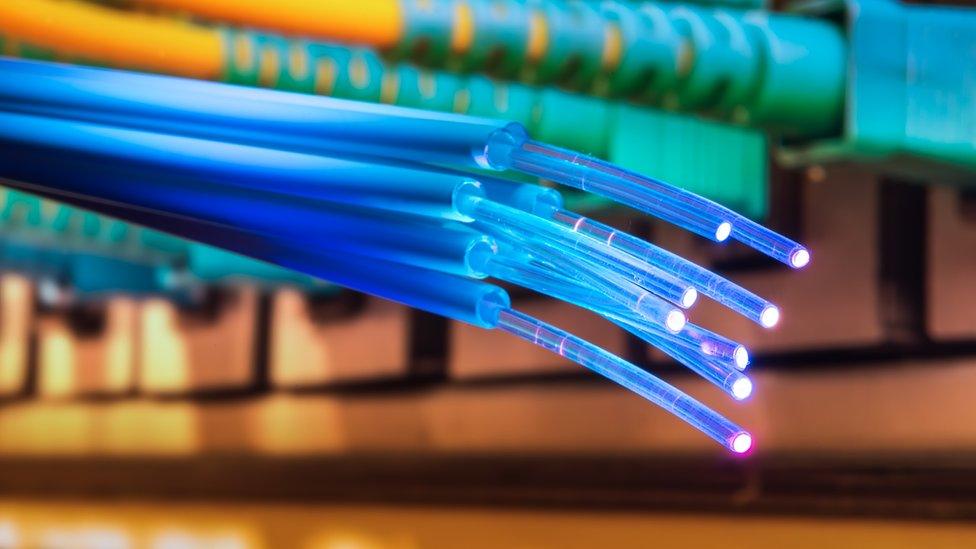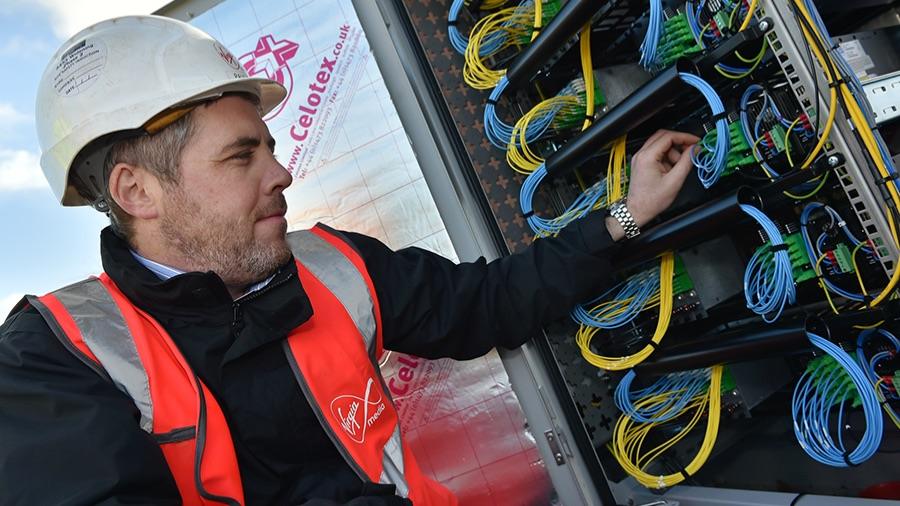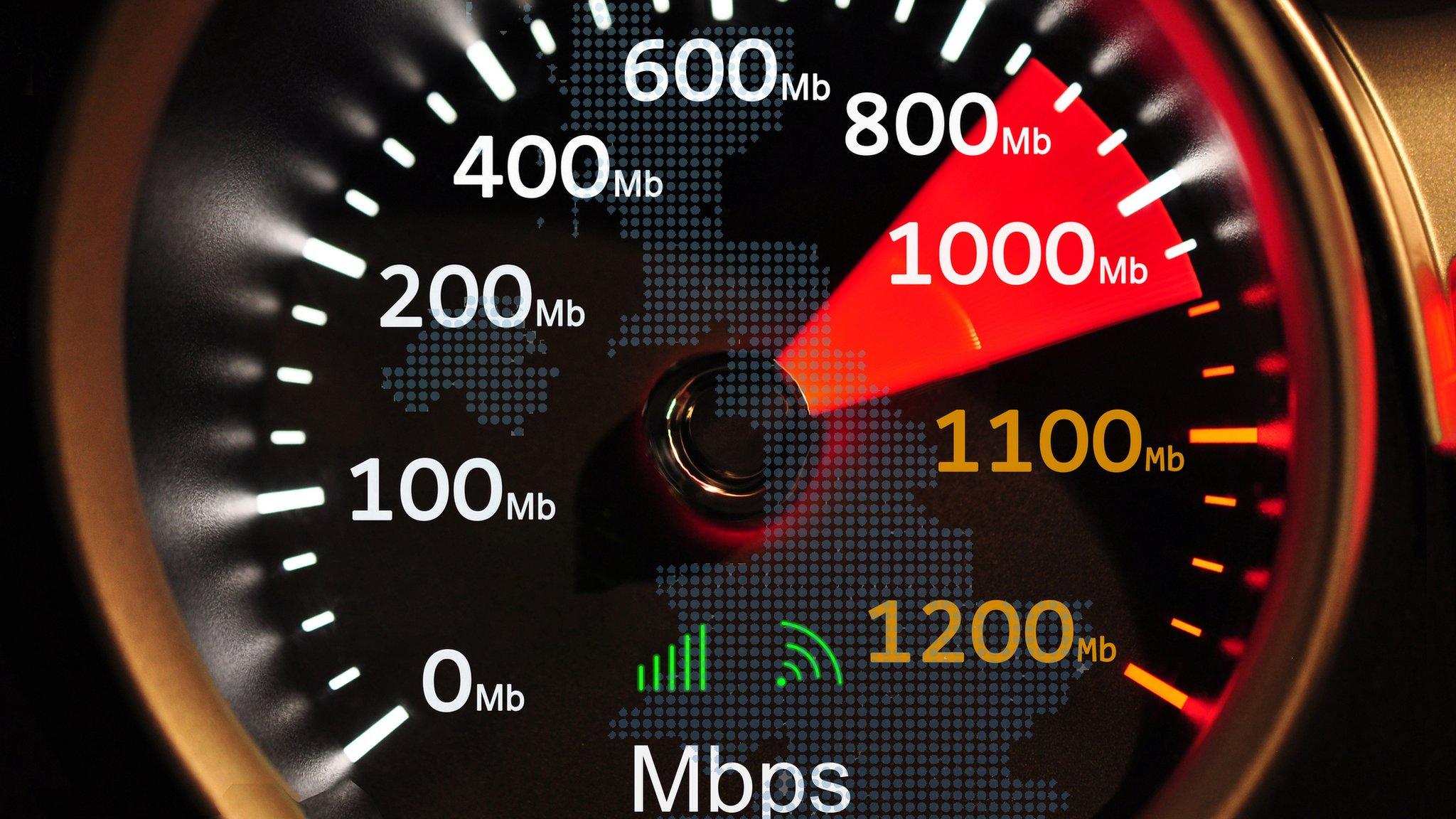West Midlands to get access to ultrafast home broadband
- Published
- comments

One million households in the West Midlands will be able to access ultrafast gigabit-capable broadband from March, Virgin media says.
The company says the switch-on of its gigabit services is the largest in the UK, and will be available in Coventry, Birmingham and the surrounding areas.
Gigabit technology allows for download speeds of more than 1,104 megabits per second. The average UK speed is 54Mbps.
But the ultra-high speeds will cost at least £62 a month - that's £744 a year.
Customers who pay for the high-speed connectivity will be able to download an ultra-high resolution 4K film of 20 gigabytes in a little over three minutes, rather than the hour it would take on an average connection.
Virgin's gigabit offering is already available in Southampton, Manchester and Reading, and the company says it plans to add "millions" more homes this year.
Nicholas Baker, a broadband expert at price comparison site Uswitch, said it was "a significant moment in the drive to update the UK's broadband network, which for a long time has lagged behind other countries".
But he warned initial take-up could be low.
"The truth is not many households will need these kinds of speeds. Our research shows that less than a quarter are currently signed up to services with speeds in excess of 60Mbps - while more than a third don't even know what their broadband speed is."
Government pledge
Upgrading the nation's broadband network was a key objective set out by the government last year.
Boris Johnson pledged to provide "full fibre" broadband to every household in the country by 2025 - a target which many service providers believed was over-optimistic.
"Full fibre" means running a fibre optic cable directly into people's homes. But the government has since shifted its plans to "gigabit-capable" connections, some of which may use older cable standards to deliver high-speed broadband.
Traditionally, copper has been the backbone of the UK's internet infrastructure, as it's used in the telephone network across the country and goes into most homes, but digging up and replacing copper with fibre optic cable is expensive and involves a lot of work.
Digital Secretary Oliver Dowden said the new announcement by Virgin Media was a step towards the plan to "deliver gigabit broadband to everyone in the UK".
"We're working closely with companies like Virgin Media and investing £5bn to ensure the hardest to reach areas aren't left behind," he said.
Future-proofing
The latest report from regulator Ofcom, at the end of last year, revealed that at least three million households in the UK can access speeds of up to one gigabit - nearly double the number of the previous year.
In July, Virgin pledged to bring its gigabit services to 15 million homes by the end of 2021, and rival providers are similarly focused on delivering ultrafast broadband.
Ultrafast is defined by Ofcom as a speed greater than 300Mbps.
Openreach, which took over control of the copper phone network from BT, claims it is upgrading customers to new full fibre at a rate of one every 23 seconds. More than two million premises are already connected to its fibre network, and it plans to connect four million by March 2021.
The goal is to reach 15 million premises "if we can get the right conditions", a spokesperson said.

Fibre optic cables use pulses of light to transmit data at very high speeds
That network can be used by other companies - like BT - to provide faster internet to customers. TalkTalk, meanwhile, has struck a deal with CityFibre, which is aiming to connect to several million homes.
"The real value offered by these faster services, is the future-proofing of broadband connections," Mr Baker said.
"Every year we connect ever more devices to our routers, all eating up additional bandwidth and frustrating other users in the home. But with speeds in excess of 1Gbps, those types of broadband woes should be consigned to the history books."
- Published25 July 2019

- Published30 September 2019

- Published14 October 2019
